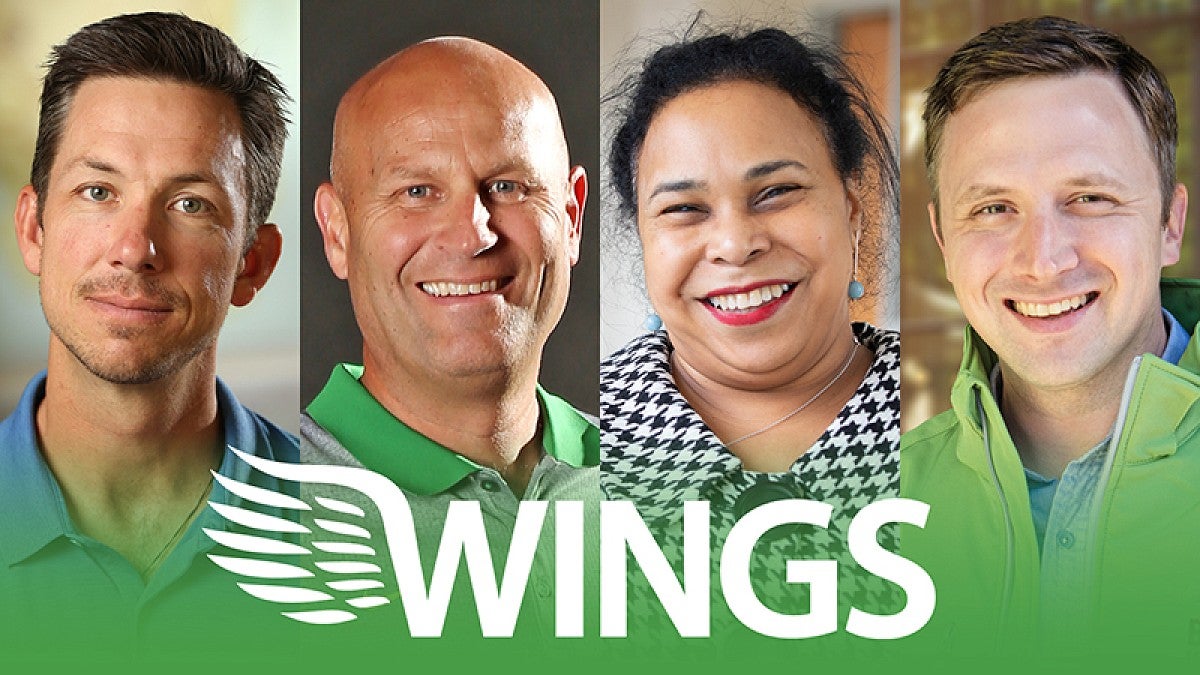Of the 12 million people brought to the Americas during the slave trade, just 450,000 landed in North America. Still, many history lessons focus on plantations in the American South, the Underground Railroad and the Emancipation Proclamation.
But what about those who didn’t end up in the United States?
“To look at slavery, you have to look at freedom. Those stories are unexpected,” said Michelle McKinley, the Bernard B. Kliks Professor of Law and part of Wings: UO Presidential Speaker Series on Wednesday, Oct. 16, in Portland.
During the course of her research, McKinley has explored how those enslaved outside the U.S., especially women, negotiated better lives for themselves and their children.
“In other parts of the Americas, people were legally able to buy themselves out of slavery,” said McKinley, director of the University of Oregon’s Center for the Study of Women in Society and a 2018-19 Williams Fellow. “Women used service and loyalty to frame rights to freedom. Children were much cheaper, so a mother would buy that child and free that child. Freedom is accrued over time. It can be over generations. Women would accrue freedom for their children while remaining enslaved.”
McKinley’s talk, “What Do We Mean When We Talk About Freedom?” is part of an evening of discussion, research and inquiry, led by UO President Michael H. Schill.
“We are excited to showcase in Portland the research, innovation and creativity that abounds at the University of Oregon,” said Schill, who will provide an update about the university at the event. “Wings is about ideas that will take flight, improve our community and advance society.”
The program includes Kelly Graves, the Duck women’s head basketball coach, who will talk about preparing and leading one of the best teams in the country in advance of the 2019-20 season.
Also, Matt Thomas, a graduate of Lundquist College of Business, will share the story of coming up with the idea for Townshend’s Tea Company as an undergraduate class project. His company now includes Brew Dr. Kombucha — one of the leading kombucha brands in the U.S. — and Townshend’s Distillery. Brew Dr. will provide a kombucha experience during the opening reception.
UO geologist Josh Roering uses technology that allows him track and research natural hazards such as landslides, floods and earthquakes. His talk, “Using Lasers to Peer Behind Cascadia’s Green Veil,” will explore how lidar, a remote sensing method using laser pulses, has been used for the last two years in the Columbia River Gorge to monitor the landscape since the Eagle Creek Fire, comparing it with mapping done before.
“There has been an incredible shift in our ability to depict the earth in our lifetime,” said Roering, who leads the Earth Surface Processes Laboratory in the College of Arts and Sciences. “The Pacific Northwest was really hard to study, because of the trees. It was not easy to work here. That was amazing because we live in such a dynamic place.”
Lidar allows geologists to survey the features below the thick canopy of trees.
“The laser pulses are able to map the geology below,” Roering said. “For instance, a single tree might get assigned 1,000 data spots. Next time we survey that area, we can see what has moved, the effects of natural hazards, and the recovery, like when vegetation starts to come back.”
JazzArts a UO student ensemble will perform at Wings. The event is hosted by David Rae of 503 Media and TedxPortland. Tickets are $25 and include appetizers, drinks and dessert. The event is 5:30 to 8 p.m. at The Redd East, 831 SE Salmon St., Portland.
Videos of past Wings speakers are available online.
—By Heidi Hiaasen, University Communications


